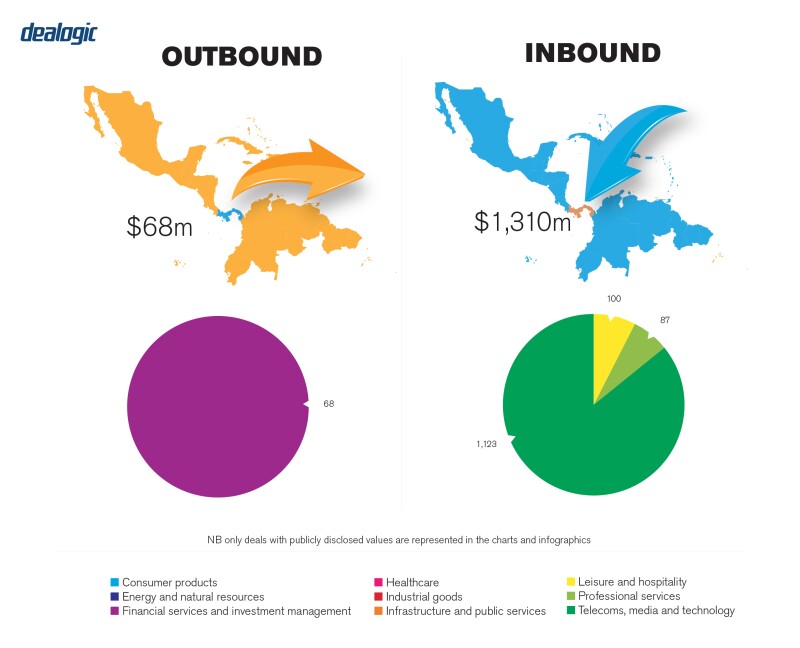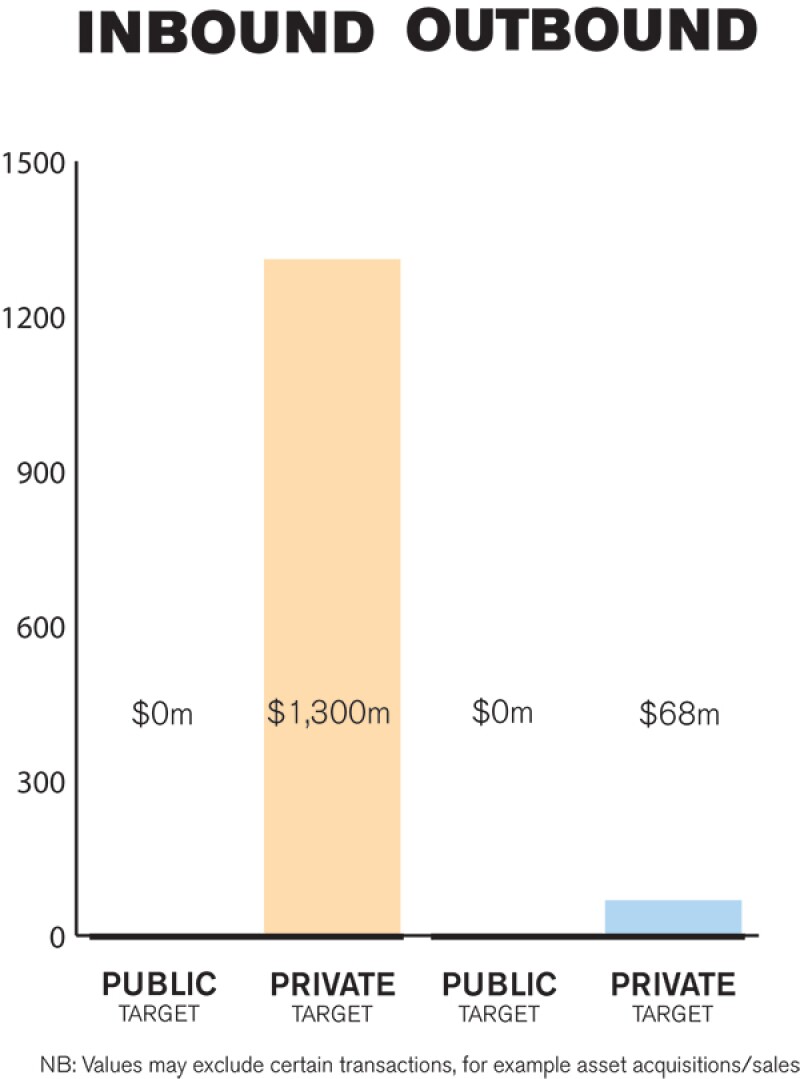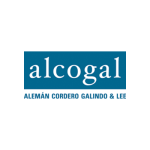The environment for M&A transactions is very favourable. 2019 proved to be an active year for the M&A market in Panama and we foresee a similar dynamic trend in 2020.
The M&A market was especially active in the financial services industry (banking) and we also expect this trend to continue into 2020. One of the drivers behind the increase in M&A for the coming year is a pressure to consolidate in the financial services industry due to increased costs, among other factors. Panama's sustained growth (although lower than in previous years) continues to make the jurisdiction an attractive acquisition market. We expect the most M&A activity in the financial industry (banks, investment advisors, and insurance companies) and in retail.
The market is primarily driven by private M&A. However, in 2019 there was a sale of a large publicly listed company that included a purchase mechanism through the Panamanian Stock Exchange.
In the financial services area, regulatory costs encouraging consolidation. We have seen several mergers and acquisitions involving banks in 2019 and expect to see others in the short term. The market has seen several financed transactions, in which the closing of the transaction is conditioned on obtaining the required financing. This has not been typical in Panama as we are used to seeing cash offers. Additionally, we have recently seen transaction structured to select certain assets by way of spin offs and the restructuring of distressed assets.
Panama has experienced an increase in activity by financial investors interested in acquiring distressed companies or companies in which they believe efficiencies can be made, particularly in the retail sector. With respect to financial investors, they have primarily been active in the energy sector and this activity has not permeated to other sectors.
Various recent distressed M&A transactions have elicited a debate with respect to the new Reorganization and Insolvency Law and the relationship between distressed companies and their creditors. To our knowledge, this has not been tested and continues to be a source of some uncertainty and debate.


LEGISLATION AND POLICY CHANGES
M&A transactions in Panama are impacted by provisions of the Commercial Code, the Civil Code, Law No. 32 of 1927 as amended (the Corporations Law) – depending on the nature of the target company, Limited Liability Company Law and industry-specific regulations (banking, securities, mining, energy, etc.). As M&A activity tends to lead to taxable events, the Tax Code and its regulations are also applicable.
The primary regulator for M&A activity in Panama will depend on the nature of the business undertaken by the target company. So, for example, in the case of banks, the primary regulator would be the Superintendency of Banks of Panama, and in the case of broker dealers or investment advisory firms, the primary regulator would be the Superintendence of the Securities Market (formerly known as the National Securities Commission). In all cases that may result in an economic concentration, the antitrust authority (the Consumer Protection and Competition Defence Authority – Acodeco) could play an important role.
There were no changes to regulations or to regulators in 2019 that would specifically impact M&A transactions or activity in 2020 and beyond, and none are expected to be adopted. To our knowledge, there are no rules, legislation or policy frameworks under discussion that may impact M&A in Panama in the near future, and none in relation with most regulated industries (telecom, energy, banking, securities, mining, among others).
MARKET NORMS
The most common misconceptions about Panama are that there are no economic concentration regulations in place that need to be considered in an M&A transaction. In reality, M&A transactions in Panama can be directly affected by Law No. 45 of October 31 2007 (the Consumer Protection and Competition Defence Law), Executive Decree No. 8-A of January 22 2009, which regulates Title I (Monopoly) and other dispositions of Law No. 45 of October 31 2007 and Resolution No. A-31-09 of July 16 2009, through which Acodeco approves the Guide for the Control of Economic Concentrations, even though these regulations do not establish a specific threshold for review of particular transactions.
The types of transactions caught are all transactions that fit into the economic concentration concept, as established by Law No. 45 of 2007. These include any merger, acquisition of control or any other act by virtue of which corporations, partnerships, associations, shares, social parties, trusts, establishments, or assets in general are grouped together, that takes place between suppliers or potential suppliers, customers or potential customers and other competitors or potential competitors.
Certain sectors, such as energy, have specific thresholds.
Internal restructurings or reorganisations are not included in the concept of economic concentrations. Prior notification of a potential economic concentration is voluntary. If parties decide to voluntarily notify in advance, they must do so before the merger has taken effect; that is, before there has been a change in control. Parties typically file prior notifications of an economic concentration when there are circumstances surrounding the transaction (i.e. market share) that increase the risk of an investigation by Acodeco.
Given that it is a voluntary prior notification, there is no prohibition of closing before clearance, but the transaction may be challenged by Acodeco or third parties within three years if it is not cleared before it takes place. If prior notification is filed, Acodeco must review within 60 days of the date of notification or of an additional information request by Acodeco. If Acodeco does not issue a response within that 60-day timeframe, the concentration is deemed to be approved. If Acodeco reviews the transaction directly, it has up to three years to complete its review of the transaction. Acodeco will have the authority to investigate and challenge economic concentrations which have not submitted to prior verification within a three-year period from the date on which change of control occurred. Acodeco can only have jurisdiction to review and impose penalties in cases where there is an economic concentration in Panama.
There are also commonly made mistakes in relation to capital gains tax and whether these are payable in Panama in connection with the sale of company incorporated in Panama. As Panama follows a territorial system of taxation, only Panama-sourced income is taxable. Panama-sourced income is generally defined as income and capital gains realised in connection with a trade, business or real estate transaction in Panama.
Typical questions from investors have to do with the filing of a prior no-objection request from Acodeco, and in the case of M&A transactions in regulated industries such as financial services (banking and securities), questions dealing with the requirements and timing for applicable prior authorizations and the timing thereof.
In terms of legal practice, to date technology has not played a large role in the local M&A deal-making process, other than perhaps during the due diligence process with regards to virtual data room tools.
PUBLIC M&A
A takeover offer of a public company must be made to all the shareholders, with equal terms and conditions, and the purchase price must be paid to all shareholders who accept the offer. If a bidder offers to purchase more than 25% of the shares of a public company, or offers to purchase any number of shares which, as a result of the purchase, results in the bidder owning more than 50% of the issued and outstanding shares of the public company, the offer must be subject to the public tender offer rules under the securities laws. If the tender offer will result in the bidder owning more than 75% of the issued and outstanding shares of the public company, the offer must be made for all shares of the target which are not owned by the bidder.
In Panama, buyers can make conditional offers. However, in the context of public tender offers, the securities law requires committed funding and the posting of a guarantee (for example cash or bond) to cover the tender offer.
There is no market standard for fees and the parties to an M&A transaction are free to agree to any break fees and the parties, Public M&A transactions have been rare in Panama.
PRIVATE M&A
In Panama, the use of escrows and earnouts are perhaps the only current trends with regards to consideration mechanisms. Completion accounts are still the most popular consideration mechanism, but we are seeing more locked-box mechanisms in order to provide sellers certainty over the consideration. W&I insurance is not common in Panama for M&A transactions, but we are seeing it more often in transactions in which private equity firms participate.
There are no specific conditions attached to private takeover offers, above and beyond the standard, that are attached to a private takeover offer in Panama.
The use of a foreign governing law would typically depend on the jurisdiction of the purchaser and the size of the transaction. Domestic business combinations are typically governed by Panama law. Large transactions with foreign purchasers tend to prefer New York law and jurisdiction. Having said this, Panamanian law and jurisdiction are increasingly being chosen even for large transactions.
From a legal perspective, the exit environment is quite flexible. Having said this, in practice, it is not common to see exits in the form of IPOs, trade sales or sales to financial sponsors. The typical exit strategy for financial investors has been simple sale transactions. Given that the growth of financial investors is fairly recent, we do not have sufficient data to establish a trend with respect to exits for strategic or financial investors.
LOOKING AHEAD
Our prediction is for the M&A market to remain active, like in 2019. Panama's economy is expected to continue to lead the region in growth, and that should ultimately translate into continued M&A activity.
Click here to read all chapters from the IFLR M&A Report 2021

Eloy Alfaro B
Partner
Alemán Cordero Galindo & Lee
T: +507 269 2620
Eloy Alfaro B joined Alemán Cordero Galindo & Lee as an associate in 2004 and became a partner in 2011. His professional practice focuses on banking, finance and capital markets, corporate and M&A, public bids and concession contracts and real estate law. Eloy has been active in mergers and acquisitions, assisting clients such as Grupo Aval, Citibank, the Bank of Nova Scotia and BBVA in banking acquisitions, mergers and dispositions in Panama, in addition to assisting several other international banks and companies in cross-border financing transactions. Eloy has also advised Panamanian and international clients in important public bid projects.
Eloy has a JD from the University of Pennsylvania Law School, and a BA in political science from Columbia University. He is a member of the National Bar Association of Panama. He is fluent in Spanish and English.

Rita de la Guardia
Senior associate
Alemán Cordero Galindo & Lee
T: +507 269 2620
Rita de la Guardia joined Alemán Cordero Galindo & Lee in 2014. Her professional practice focuses on banking, finance and capital markets, corporate and M&A. Rita has been active in mergers and acquisitions, assisting clients such as Citibank and Celsia. She has a JD from Cornell Law School and a BSc in foreign service from Georgetown University. Rita is a member of the National Bar Association of Panama. She is fluent in Spanish and English.



